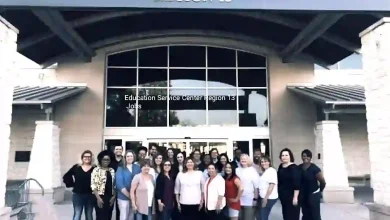North Carolina Education Lottery: Raising Funds for Education
Introduction
Table of Contents
In addition to sponsoring educational projects and having a positive effect on communities all throughout North Carolina, the North Carolina Education Lottery has grown to be a significant source of money for the state.
The Origin of the North Carolina Education Lottery
After the General Assembly approved the North Carolina State Lottery Act in 2005, the North Carolina Education Lottery was launched. The lottery’s main goal was to raise money for the state’s education system, with a focus on supporting projects like school construction, college scholarships, and early childhood programs.
How Does the Lottery Work?
There are several different games available through the North Carolina Education Lottery, including scratch-off tickets and draw games like Powerball and Mega Millions. Players may buy tickets from accredited merchants all around the state, and the money made from ticket sales is put into a pot.
Random number generators are used to select the winning numbers, which are then released through various media outlets. The variety of prizes, which vary from modest monetary sums to multimillion-dollar jackpots, excite and motivate players.
Funding Education: Where Does the Money Go?

The North Carolina Education Lottery’s main goal is to raise money for educational purposes. The proceeds from ticket sales are used to fund a variety of educational programs and projects in large part.
The funds are distributed across multiple areas, including:
- School Construction and Renovation
- College Scholarships
- Pre-K and Early Childhood Programs
- Technology and Equipment
Controversies and Criticisms
While the North Carolina Education Lottery has been successful in fulfilling its mission of funding education, it has not been without controversies and criticisms. Some of the common concerns raised include:
- Regressive Taxation: According to critics, low-income people are disproportionately affected by lotteries since they frequently spend a higher percentage of their income on lottery tickets.
- Addictive Nature of Gambling: Critics contend that the ease with which lottery tickets may be purchased contributes to the addictive nature of gambling and its negative impacts on both individuals and families.
- Perception of Misallocation of Funds: Skeptics contend that lottery monies can act more as a replacement for current education expenditures than as a supplement.
- Negative Social Consequences: According to some research, more accessibility to gambling options, such as lotteries, may result in higher crime rates, gambling addiction, and other unfavorable social effects.
Ensuring Responsible Gaming
To address the concerns surrounding gambling addiction and promote responsible gaming, the North Carolina Education Lottery has implemented various measures:
- Public Awareness Campaigns: To inform players about responsible gaming habits, the dangers of problem gambling, and the options that are available for assistance, the lottery runs public awareness campaigns.
- Player Self-Exclusion: If a person believes they are at risk of developing a gambling problem, they can unilaterally bar themselves from taking part in lottery activities.
- Age Verification: To prevent underage gambling and for legal compliance, strict age verification mechanisms are in place.
- Funding Problem Gambling Support Services: A portion of lottery proceeds is set aside to support programs that aid those who are addicted to gambling, including helplines, counseling services, and treatment centers.
The Future of the North Carolina Education Lottery
As the North Carolina Education Lottery continues to evolve, there are ongoing discussions and debates about its future direction. Some potential areas of focus for the lottery include:
- Innovation in Game Offerings: The lottery may explore new game formats and innovative approaches to attract a broader player base and increase revenue for education funding.
- Expanded Community Engagement: Strengthening partnerships with educational institutions, community organizations, and stakeholders to ensure that lottery funds are effectively utilized and address the evolving needs of the education system.
- Enhanced Transparency and Accountability: Continued efforts to maintain transparency in fund allocation, addressing concerns regarding misperceptions or doubts about how lottery funds are used.
Here are some of the specific educational programs that have been funded by the North Carolina Education Lottery:
Teacher salary supplements
- School construction
- Pre-kindergarten programs
- Textbooks and other classroom materials
- Technology upgrades
- After-school programs
- Summer enrichment programs
- Scholarships for college students
The North Carolina Education Lottery is a popular way for people to support education in the state. Since its inception, the lottery has raised billions of dollars for education, making a real difference in the lives of North Carolina students.
Here are some additional details about the lottery:
- The minimum age to buy a lottery ticket in North Carolina is 18 years old.
- A Powerball jackpot winner has a 1 in 292.2 million chance of doing so.
- There is a 1 in 302.5 million chance of winning the Mega Millions jackpot.
- The odds of winning the Cash 5 jackpot are 1 in 962,600.
- The lottery is open from 6am to 1am every day.
- Drawings are held every night at 11:00pm Eastern Time.
- The odds of winning the jackpot are very low, so it is important to play responsibly and only spend money that you can afford to lose.
- There are other ways to support education in North Carolina, such as donating to your local school or volunteering your time.
If you do win the lottery, it is important to seek financial advice to help you manage your winnings.
Conclusion
The North Carolina Education Lottery has provided the majority of the funding for educational initiatives in the state. By supporting school construction, scholarships, early childhood initiatives, and technological advancements, it has made a notable impact on North Carolina’s educational system. Regressive taxes, gaming addiction, and effective money distribution must all be addressed if the lottery is to continue having a positive impact on education.
South Carolina Education Lottery



